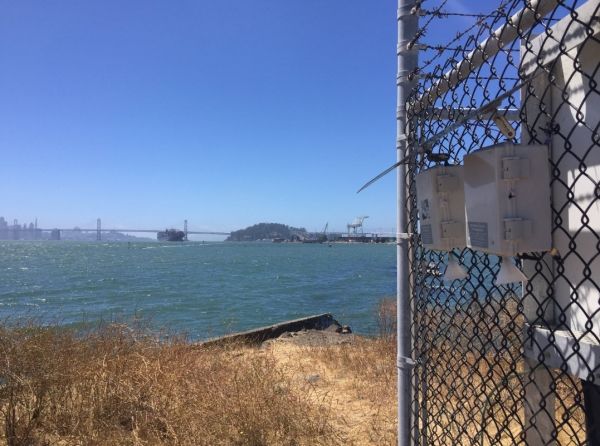Black carbon, commonly known as soot, is a significant contributor to global warming and is strongly linked to adverse health outcomes. Produced by the incomplete combustion of fuels – emitted from large trucks, trains, and marine vessels – it is an air pollutant of particular concern to residents in urban areas. Sensors available on the market today are expensive, making black carbon difficult to track.
Researchers at the U.S. Department of Energy’s Lawrence Berkeley National Laboratory (Berkeley Lab), collaborating with UC Berkeley, have developed a new type of sensor network that is much more affordable yet capable of tracking this particulate matter. With more than 100 custom-built sensors installed across West Oakland for 100 days, the team created the largest black carbon monitoring network to be deployed in a single city.
Read more at DOE / Lawrence Berkeley National Laboratory
Photo: Two sensors in the largest black carbon air quality monitoring network ever deployed in a single city, with a spatial density approximately 100 times greater than traditional regulatory networks. The lowest black carbon levels were consistently recorded at sites like the one pictured, upwind of freeways and most industrial activity. (Credit: Chelsea Preble/Berkeley Lab)


